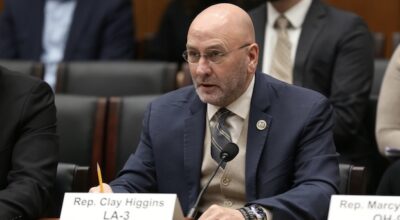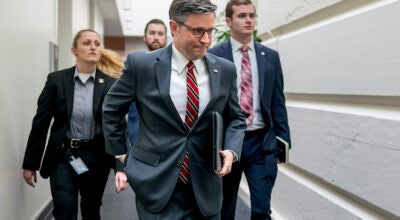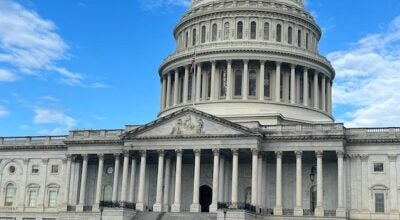Senate moves forward on transportation spending
Published 12:49 pm Tuesday, July 23, 2013
WASHINGTON (AP) — A $108 billion measure that would boost funding for infrastructure projects and housing subsidies for the poor is moving ahead in the Senate, highlighting the stark differences between the Democratic-led chamber and the GOP House over the budget.
The measure cleared a procedural hurdle by a bipartisan 73-26 vote Tuesday, and that sets up days of debate with the goal of passing the measure next week.
But without a broader budget agreement in place, the spending gains for Democratic priorities like road projects and bridge repairs are illusory. The huge measure spends about $10 billion more than a House GOP version and is part of a budget framework set up by Senate Democrats that seeks to replace deep cuts to agency operating budgets with tax increases and more modest curbs on spending.
The higher Senate spending levels permit $550 million in transportation infrastructure grants first established in the 2009 economic stimulus bill and a new $500 million fund for bridge repair projects. The companion House measure contains no such funding and cuts community development block grants to just $1.6 billion, about half the level called for by the Senate. The Senate measure contains increases for Section 8 housing for the poor that would allow those on years-long waiting lists to get apartments while the House measure contains only enough funding to keep current beneficiaries from losing their subsidies.
The measure is one of the 12 annual spending bills that need to be passed each year to set Cabinet budgets. The Democratic-led Senate and GOP-controlled House are in sharp disagreement over the budget and there’s no sign the impasse will be broken anytime soon. This means the government will largely remain on autopilot under mandatory, across-the-board spending cuts that came about as a consequence of Congress’s failure to agree on a broader budget.
As a result, the Senate measure as written would be subject to those cuts. So even if it were to somehow advance to President Barack Obama’s desk, it would be subject to sequestration that would reverse most of its spending increases. The path of least resistance is to pass what in Washington-speak is known as a “continuing resolution,” a measure that funds the government at current levels with minimal adjustments.
“The appropriations bills between the two Chambers are so far apart that aligning them would be difficult, if not impossible,” said Sen. Richard Shelby of Alabama, top Republican on the Appropriations Committee. “The end game will probably be a continuing resolution.”
The budget year ends on Sept. 30. A stopgap spending bill would be required to prevent a partial shutdown of the government as negotiations drag on through the fall. Such bills are typically routine, but this year House and Senate leaders are at odds over whether to finance these temporary government operations at a level consistent with the 2014 post-sequester level of $967 billion.
“Democrats haven’t given up on reversing the sequester and setting sound fiscal policy through the regular order of the budget process,” said top Senate Democrat Harry Reid, D-Nev. “And we know Democrats and Republicans will never find common ground if we never start negotiating.”
Speaker of the House John Boehner, R-Ohio, reiterated that Republicans will demand spending cuts as a condition of increasing the government’s borrowing cap this fall and avert a fiscal crisis.
“We need significant cuts in spending if we’re going to replace the sequester and extend the debt limit,” Boehner told reporters.
Obama vows that he won’t allow the so-called debt limit to be held hostage to GOP demands for spending cuts like he did two years ago.
Meanwhile, a Republican-controlled House panel responsible for funding the Environmental Protection Agency, clean water projects and the national parks approved a measure with slashing cuts that prompted bitter protests from Democrats. The top Democrat on the panel, Rep. Jim Moran of Virginia, walked out of the session after excoriating the GOP measure as a “disgrace.”
Moran cited sweeping cuts to grants for clean and safe drinking water projects, the Fish and Wildlife Service, and a cut to the EPA of more than one-third. He also cited numerous anti-environment policy “riders.”
Rep. Nita Lowey on New York, top Democrat on the full Appropriations Committee, said the measure contains an “industry wish list of giveaways,” including provision that would allow mining companies to evade potential rules that would require they have enough money to clean up anything they leak into the ground and water.
At the same time, the full House began debate on an almost $600 billion measure funding the Pentagon and military operations in Afghanistan.
(Associated Press)





